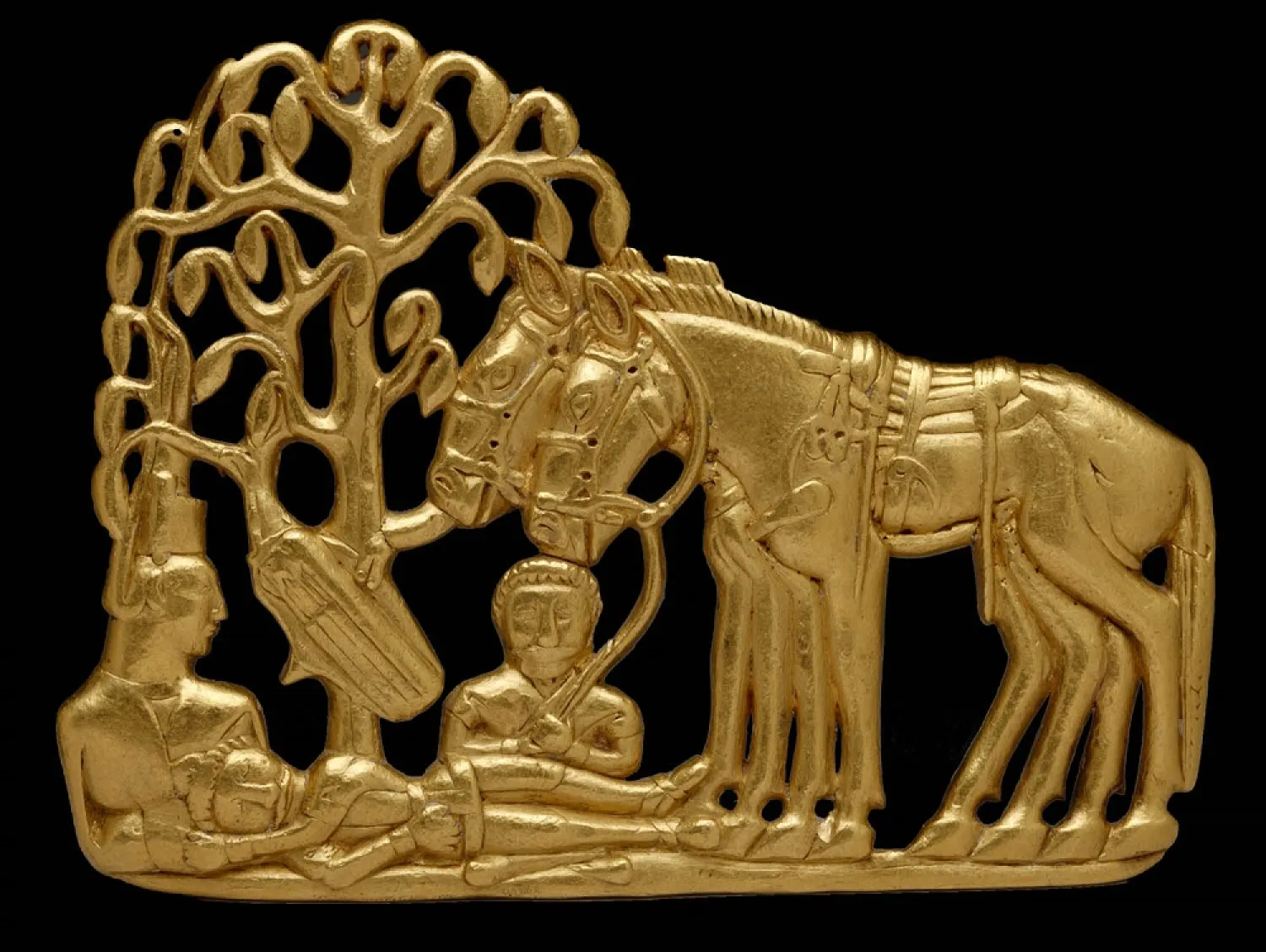The Scythian people, predecessors of the Mongols, ruled a massive area of the Eurasian steppe located between Northern China and the Black Sea, between the ninth and the second century B.C. Little has been known about their culture, until now.
The “Scythians: Warriors of Ancient Siberia” exhibition was launched at the British Museum in London to change the people’s perception of this ancient culture.
Back then, people feared the Scythians, calling them “warriors on horseback”. They used to drink milk from the skulls of their enemies, tattoo themselves with charcoal and consume cannabis.
The Scythians, who spoke Persian, had no written language, so information about them comes from ancient Greeks, Assyrians and Persians.
The exhibition’s website reads: "For centuries, all traces of their culture was missing, and buried under the ice.”
The exhibition, which runs until January 14, wonders whether the civilization is the inspiration behind the famous "Game of Thrones" book and television series.
Most of the 200 pieces featured in the exhibition come from southern Siberia. Many of them are borrowed from the Hermitage Museum in St. Petersburg and are being exhibited outside of Russia for the first time.
The artifacts are are well preserved because they have been buried under ice in the burial hills and tombs of the Altai Mountains in Central Asia.
The exhibit includes pieces discovered at archaeological excavations during the rule of Russia’s Peter the Great in the early 18th century. They include the head of a chief from Scythian tribal, displaying his tattooed skin and glittering gold necklaces. Other pieces include embellished gold for men and women, pendants, leather shoes, and some well-preserved pieces of cheese.
According to the German News Agency (dpa), the exhibit also features engraved stone and massive sarcophagi.
The Scythians, predecessors of the Huns and Mongols, revered horses and relied on them in their wars. Horses, adorned with heavy embellishments, were often buried with their owners to accompany them in their afterlife.









